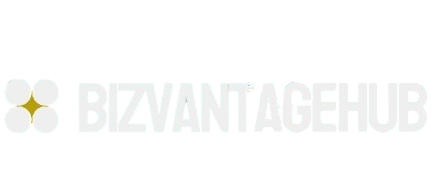bizvantagehub.com – Adaptability is the ability to adjust to new conditions, embrace change, and thrive in dynamic environments. In today’s fast-paced world, where technology, economies, and social norms evolve rapidly, adaptability is a critical skill for personal and professional success. Whether navigating career shifts, personal challenges, or global uncertainties, being adaptable empowers individuals to stay resilient and seize opportunities. This article explores the importance of adaptability, its benefits, and practical ways to cultivate it.
Why Adaptability Matters
Adaptability enables people to respond effectively to unexpected changes, such as job loss, technological advancements, or societal shifts. It fosters resilience, reduces stress, and enhances problem-solving. In the workplace, adaptable employees are valued for their ability to learn new skills, embrace innovation, and handle uncertainty. Studies show that adaptable individuals are 25% more likely to succeed in dynamic roles, as they can pivot quickly and maintain productivity.
Benefits of Being Adaptable
-
Improved Resilience: Adaptable people recover faster from setbacks, viewing challenges as opportunities.
-
Enhanced Learning: Embracing change encourages continuous learning and skill development.
-
Better Relationships: Flexibility in communication and behavior strengthens teamwork and collaboration.
-
Career Growth: Adaptable individuals are more likely to secure promotions or navigate career transitions.
-
Mental Well-being: Adapting to change reduces anxiety and fosters a positive outlook.
How to Cultivate Adaptability
-
Embrace a Growth Mindset: Believe that skills and abilities can be developed through effort. View failures as learning opportunities.
-
Stay Open to Change: Practice accepting new ideas or routines, even if they feel uncomfortable initially.
-
Develop Problem-Solving Skills: Break challenges into manageable parts and brainstorm multiple solutions.
-
Learn Continuously: Take online courses, read widely, or seek mentorship to stay updated with trends.
-
Build Emotional Resilience: Practice mindfulness or journaling to manage stress and maintain clarity during change.
-
Seek Diverse Experiences: Travel, volunteer, or engage in new hobbies to broaden perspectives and adaptability.
-
Practice Flexibility: Try small changes, like altering your daily routine, to build comfort with uncertainty.
-
Network and Collaborate: Connect with diverse people to gain new insights and adapt to different viewpoints.
-
Reflect and Adjust: Regularly evaluate your progress and adjust strategies to align with goals.
-
Stay Positive: Focus on possibilities rather than obstacles to maintain motivation during change.
Real-World Examples
During the COVID-19 pandemic, businesses that adapted by shifting to remote work or e-commerce thrived, while rigid ones struggled. Similarly, professionals who learned digital skills, like video conferencing or coding, stayed competitive. Adaptable individuals, like freelancers who pivoted to new industries, often outperformed those resistant to change.
Challenges to Adaptability
Fear of failure, rigid thinking, or lack of confidence can hinder adaptability. Overcoming these requires self-awareness and gradual exposure to change. For example, setting small, achievable goals can build confidence in handling uncertainty.
Adaptability is a vital skill in an ever-changing world. By fostering a growth mindset, embracing learning, and staying open to new experiences, anyone can become more adaptable. This not only enhances personal growth but also ensures success in careers and relationships. Start small, stay curious, and embrace change to thrive in any environment.





